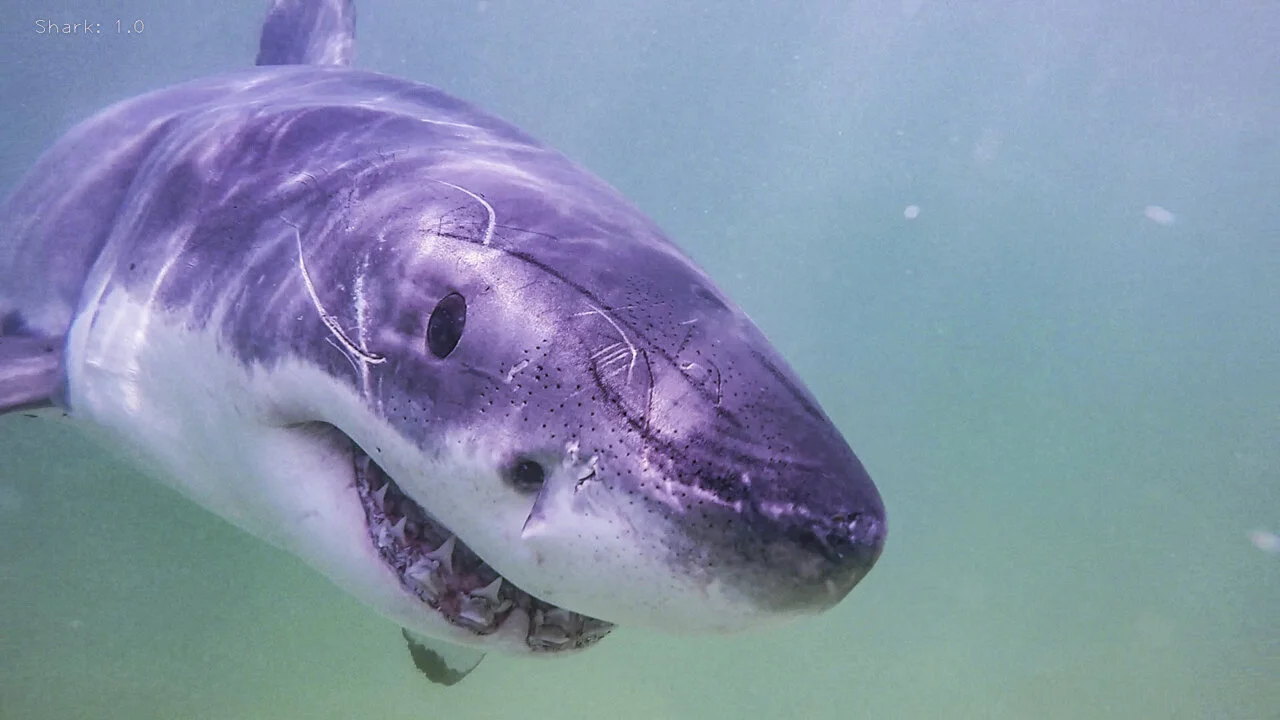Cape Cod, a picturesque coastal region in Massachusetts, has long been admired for its scenic beauty and maritime charm. However, beneath the serene surface of its waters lies a fascinating and somewhat fearsome secret—the presence of great white sharks.
A groundbreaking study conducted by the Atlantic White Shark Conservancy, UMass Dartmouth, and the Massachusetts Division of Marine Fisheries has recently unveiled Cape Cod as one of the world’s largest hotspots for these awe-inspiring creatures. With 800 white shark visits recorded between 2015 and 2018, the study marks a significant milestone in understanding the behavior and abundance of these iconic marine predators in the North Atlantic Ocean.
For the first time, scientists have been able to calculate the “white shark abundance” in the North Atlantic thanks to the exhaustive efforts of the research team. The study meticulously analyzed nearly 3,000 videos captured during 137 trips to Cape Cod beaches. Through this method, researchers identified 393 individual white sharks, shedding light on their movement patterns and population dynamics.
Comparing to Global Hotspots
The findings have placed Cape Cod in an elite category of global hotspots for great white sharks. The numbers recorded in Cape Cod are not only comparable to but even larger than earlier projections for white shark populations in renowned areas such as South Africa, central California, south Australia, and Guadalupe Island in Mexico. The revelation cements Cape Cod’s status as a critical location for understanding and conserving these majestic apex predators.
Factors Influencing Shark Population
The study highlighted that shark population on Cape Cod experiences a peak during late summer and early fall when ocean temperatures are warmer. These conditions likely coincide with increased food availability, particularly seals, which attract white sharks to the area. It’s crucial to remember that shark attacks are rare, and experts emphasize the importance of shark safety measures and public education programs to ensure a harmonious coexistence between humans and these vital marine creatures.
Ensuring Public Safety
Massachusetts shark researcher Greg Skomal emphasized that the study’s results should not be misconstrued as indicating a constant presence of hundreds of sharks off the Cape. The movements of white sharks are highly dynamic, with some merely passing through on their migratory journey, while others may linger longer due to successful feeding opportunities. As Cape Cod braces for the anticipated return of white sharks this season, the New England Aquarium’s scientists are encouraging the public to report any shark sightings through the Sharktivity app. These reports will help ensure public safety and enhance awareness about shark behavior and their vital role in the ocean’s ecosystem.
The groundbreaking study has brought Cape Cod’s rich marine diversity and its role as a great white shark hotspot into the limelight. As researchers continue to unravel the mysteries of these awe-inspiring creatures, conservation efforts, and public safety measures will play a vital role in safeguarding both humans and the magnificent apex predators that call Cape Cod’s waters their home. By fostering coexistence and understanding, we can appreciate the true majesty of the great white shark while ensuring a harmonious balance in the delicate marine ecosystem.




